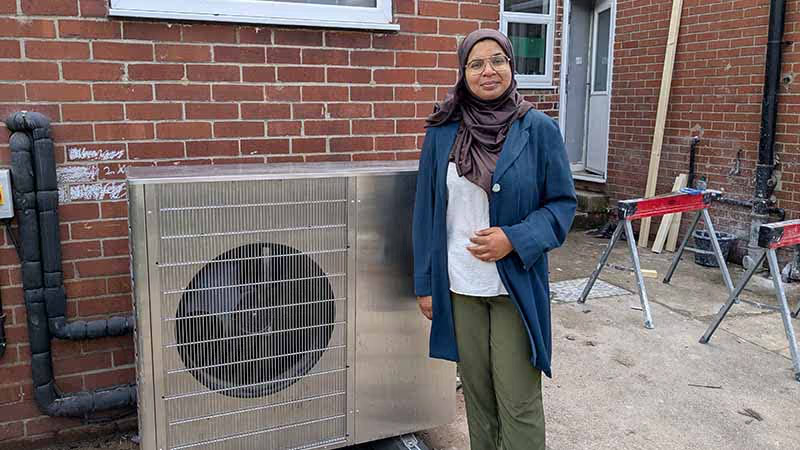




A sceptical landlord in Sheffield has become a ‘guinea pig’ and spent considerable sums on making her Victorian four-bedroom rental property in the city’s Tinsley suburb into a ‘Let Zero’ home.
This is the name of a scheme launched by the South Yorkshire Mayoral Combined Authority (SYMCA) and Innovate UK, which seeks to find landlords happy to join its pilot scheme.
The scheme hopes to make the costs and options for those wanting to retrofit their properties more easy to navigate.
How leaky Victorian homes can be made greener – and ideally reach an EPC band C by 2028 as the law will soon require – has been an area of intense debate within the private rented sector.
Labour is expected to confirm its plans for EPCs following a long consultation. These will require landlords to spend up to £15,000 getting their homes up to the ‘C’ standard, sums which the NRLA has said will a huge financial burden for landlords, and will likely be passed on to tenants as higher rents.
Landlord and letting agent Mahara Haque (main image) has decided to tackle this head on, saying she wanted to prove upgrade works can be done while also keeping tenants in situ, “but not at the expense of their comfort or the landlords’ sanity”, she says.
“Like many properties of its era, the house had serious problems.
“When we took it on this property suffered from a lot of damp and mould issues. It was getting cold really quickly and condensation as well. We were always just trying to figure out how to improve the property.
“I was very sceptical as a landlord around the sustainability features and what kind of efficiencies they would drive.
“Also, I thought, actually, we have a lot of access to investors and landlords through our content and networks, so I’ll be the guinea pig and test it out on our property.”
One of the key technologies used at the address was an internal wall insulation technique developed by Leeds-based Wrapt Homes, designed to minimise disruption by retrofitting one room at a time while tenants remain in place.

“We're doing it room by room to minimise the tenant disruption,” said Jamie Keats (pictured), director of Wrapt Homes.
“They can still live in the house, and we can take the rooms one at a time, insulate them, and hand them back before moving on to the next.”
His system uses pre-cut insulation boards that arrive on site like a giant jigsaw, allowing installers to finish a room quickly and, he claims, potentially in just one day.
“Our hope is that this approach of doing a room at a time will be something that people adopt,” he adds.
“Especially in the private rented sector, disruption is a massive issue – not just for tenants, but for landlords too.”
Haque agrees that complexity and uncertainty are some of the biggest barriers facing landlords.
“There’s just so much new technology out there,” she says. “One day we’re talking about air source heat pumps, the other day it’s hydrogen. Until someone clearly tells us a plan, I think landlords are just standing on the fence.”
The Let Zero scheme hopes to provide that transparency by offering trusted supply chains, financial guidance and technical support – something Haque believes is badly needed.
“Landlords need hand-holding – especially when there’s that many different players out in the open market vying for your attention,” she adds.
“There’s a lot of trade cowboys as well that are going around saying they’ll do works, and they’re leaving jobs half in a mess.”
Tags:
Comments